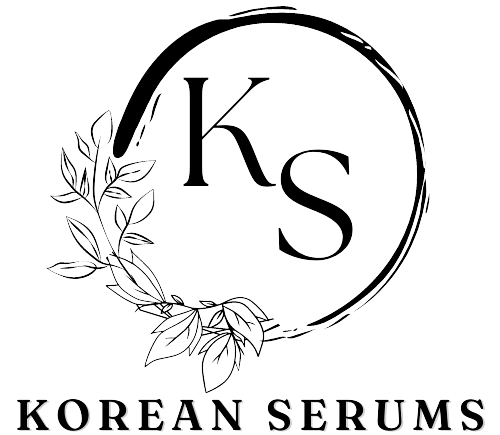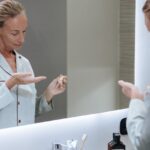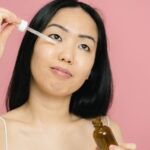Many individuals like using cosmetics as a means to improve their looks, increase their self-esteem, and allow them more freedom of expression. However, cosmetics may irritate the skin and lead to outbreaks for certain people. This is particularly annoying if you’re trying to hide imperfections with cosmetics and it’s not working.
But how can you determine whether your cosmetics are to blame for your acne? This article will discuss the most typical reasons to know if your makeup is causing breakouts, and will provide advice on how to tell whether your cosmetics are to blame.
Recognizing the Roots of Acne
Acne is caused by a variety of factors, so we’ll cover them first before discussing how to tell whether your cosmetics is to blame. Acne is often brought on by the skin’s overproduction of oil, the resulting clogging of pores, and the subsequent growth of bacteria. Acne, whiteheads, and blackheads develop when oil and dead skin cells accumulate in the pores. Inflammation and infection brought on by bacteria on the skin may also lead to breakouts.
Makeup may clog pores and lead to acne outbreaks. Even more so if you don’t properly remove your makeup or if the items you use include comedogenic components and will result in your makeup causing breakouts.
Discovering If Your Makeup Is Causing Acne or Breakouts
Now that we know what triggers pimples, we can investigate how to tell whether your cosmetics are to blame. Some crucial details to keep an eye out for are as follows:
-
Problems with Acne After Using a New Cosmetic
There’s a good chance that a new cosmetic product is to blame if you’ve begun using it and seen an increase in acne outbreaks. This is especially important when trying out a new product, especially if it includes comedogenic components like cocoa butter or coconut oil. You can determine whether a new cosmetic product is the cause of your breakouts by not using it for a few days and observing your skin’s reaction. It’s probable that the new product is what’s causing your skin to break out, so wait to use it until it’s cleared up.
-
Pimples Appearing Where Foundation Is Applied
Makeup may be to blame for breakouts if they occur on parts of the face where it is applied, such as the cheeks, forehead, or chin. This is especially the case if you’re putting on thick, oily cosmetics like foundation or concealer. Remove your makeup for a few days from the suspected area(s) to observe whether your skin clears up. If your skin improves, it’s probably because you stopped applying cosmetics there.
-
Effects of Makeup on Acne
Makeup may be causing breakouts if it is applied just before a breakout occurs. This may occur if the substance you are using contains a comedogenic component, such as mineral oil or lanolin. Wait a few hours after wearing makeup to check for breakouts to see whether they were caused by your cosmetics. Makeup may clog pores and cause breakouts if you wear it for more than a few hours before washing it off.
-
Persistent Acne, Despite Your Best Efforts to Treat It
Makeup may be to blame if you have been suffering breakouts while adhering to a normal skincare regimen. This is especially the case if you are using comedogenic products or are not thoroughly removing your makeup at the end of the day. Take a vacation from cosmetics for a few days to see whether it is the source of your frequent breakouts. Remove your makeup and see whether your skin clears up; if it does, your cosmetics are likely to blame.
-
Problems with Itching or Redness After Cosmetic Application
In the event that your skin becomes itchy or irritated after using cosmetics, you may be experiencing an allergic response to one of the components used. It’s not fun to have symptoms like redness, swelling, and itching due to an allergic response. Apply a little quantity of the product to a test patch of skin and wait a few minutes to see if you suffer any itching or irritation to determine whether you are allergic to the makeup. If so, it’s probably an allergic response to whatever it is you’re using.
-
Face makeup that is too thick or greasy to apply smoothly
Makeup that feels too thick or oily on the skin may be blocking pores and causing outbreaks. This is especially the case if the items you’re using are dense with oils or waxes. To determine whether your makeup is causing your skin to feel heavy or oily, consider switching to a lighter, more breathable composition.
How to Avoid Acne From Your Makeup?
Makeup might be a potential cause of breakouts, but once you know this, you can take steps to protect your skin and avoid the situation of makeup is causing breakouts. The following are some suggestions to think about:
1. Opt for Makeup That Won’t Cause Acne
Selecting non-comedogenic makeup is a great approach to avoid acne from your cosmetics. Products labeled as “non-comedogenic” are designed to be less pore-clogging. Avoid using products that contain comedogenic substances by seeking out those that are specifically labeled as non-comedogenic or oil-free.
2. Always use clean makeup sponges and brushes.
Makeup brushes and sponges should be cleaned regularly to avoid acne. Bacteria and oil that accumulate on these equipment might be transferred to the skin and aggravate acne. You should use a mild cleanser or a brush cleaner to frequently clean your brushes and sponges.
3. Be sure to properly remove your makeup before bed.
Makeup that is not removed correctly may clog pores and lead to outbreaks. Makeup should be removed with a mild, non-comedogenic cleanser, and abrasive scrubs and exfoliants should be avoided since they might irritate the skin.
4. Put on some lotion and moisturize your skin
As a bonus, keeping your skin moisturized and healthy by moisturizing may help reduce the frequency and severity of breakouts. Pick for a non-comedogenic, lightweight moisturizer that won’t aggravate your skin’s oil production.
5. Don’t leave your face painted on for too long
Excessive use of cosmetics may clog pores and cause breakouts because it prevents the skin from breathing. If you must wear makeup, try to keep your makeup application to a minimum and be sure to wash it off before bed.
Conclusion
Makeup is a wonderful tool for self-expression and self-improvement, but it also has the potential to aggravate the skin and cause breakouts. You should learn to know if your makeup is causing breakouts.
Using non-comedogenic products, maintaining clean equipment, removing makeup correctly, hydrating skin, and limiting the amount of time spent in makeup may all contribute to clear, healthy skin.







